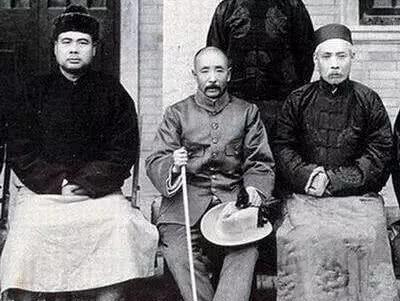Between 1917 and 1918, the Duan Qirui government and Japan signed a series of loans, known historically as the "Nishihara Loan". They sold China's sovereignty over the construction of railways and mining in the northeast to Japan, and the Duan Qirui government thought it had taken a big advantage, but in fact it laid hidden dangers for Japan's subsequent comprehensive occupation of the northeast.

During Yuan Shikai's reign, the Japanese Okuma cabinet proposed the "Twenty-One Articles" with a tough attitude in an attempt to swallow up China in one fell swoop, which was strongly opposed by our people. Japan's successor Prime Minister Masayoshi Terauchi learned the lesson of the former and negotiated on the grounds of a large amount of borrowing. It not only eased the dissatisfaction of the Chinese people, but also achieved the purpose of tightening control and plundering China. At that time, Japan increased its export of goods due to the European war relations, and had excess capital, which provided conditions for the export of capital to China. As a result, Japan imported capital into China and borrowed a large amount of money to the Duan Qirui government. However, Japan did not come forward in the name of the government, but in the capacity of Terauchi Masayuki's personal representative, Nishihara Kamezo came forward to contact. Japan has done a lot of work behind its back in order to achieve its goals.
On the other hand, after Duan Qirui became prime minister, the "Dharma Protection Movement" advocated by Sun Yat-sen intensified. The government needs military weapons to suppress the movement, but it doesn't have that much money. Therefore, he did not hesitate to sell out the national interests and borrow a lot from Japan. In fact, as early as 1916, Duan Qirui advocated that "China's valuable list of agricultural, industrial, and commercial mines should be listed and discussed with Japan, whether it should be run by China itself or jointly run by China and Japan, or run by the Japanese, so as to achieve the purpose of Sino-Japanese goodwill."
The Duan Qirui government and Nishihara Kamezo negotiated eight loans totaling 145 million yen. For every loan, an interest in China is secured. For example, in the terms signed on April 30, 1918, Japan paid 20 million yen to China, guaranteed by all the property and income of the national cable telegraph.
The Duan Qirui government felt that just by giving the Japanese some rights and interests, they could obtain a large amount of borrowing, which was a very cost-effective transaction, and even thought that China had taken a "big advantage". Borrowings were often diverted by the government, and more than 90 percent were used for duan Qirui's government's military and political expenses and the repayment of foreign debts. Duan Qirui took advantage of Japan's support to maintain his dictatorship and unify by force, further strengthening the strength of the Anhui warlords.
The Nishihara loan gave Japan a large amount of economic interests in China and controlled China's telecommunications business. In the name of borrowing money from the war, Japan sent a large number of advisers to the Duan Qirui government to interfere in China's internal affairs, sent officers to train the army for him, and obtained the command of the so-called "war army" he had compiled and trained. Japan's interests in China far exceeded those of the original Twenty-One Articles, and also laid hidden dangers for Japan's occupation of Northeast China.